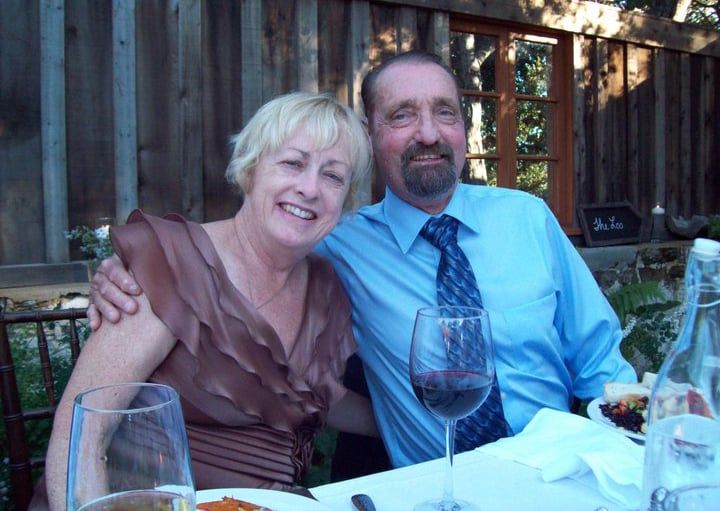After forty years of marriage, Don and Jill Stegman had it all—two beautiful children, a stable relationship, fulfilling careers. But a blood cancer led Don to a bone marrow transplant in 2007. Recovery over the next several years included frequent bouts of graft-versus-host disease, which was treated with a drug called prednisone.
Prednisone is a corticosteroid, a potent inflammation fighter for many types of illnesses and diseases from rheumatoid arthritis to glaucoma. In fact, over 55 million prescriptions a year are written for this drug. But while it is a life-saver for many, it comes at a terrible cost for those who must stay on high doses for prolonged periods of time. Long-term use can lead to heart disease, kidney disease, osteoporosis, diabetes, and psychiatric reactions. Don was prescribed high doses of prednisone on and off for several years following the bone marrow transplant for flareups of graft-versus-host disease.
Although Don’s doctors seemed to be on top of the physical problems Don experienced from prednisone, Jill was concerned about Don’s mental deterioration while he was on the drug. During this time Don became initially euphoric, then had insomnia, and finally “crashed and burned,” acting erratic and combative. Don had never been that way. Jill and Don always had a close relationship, hiking the hills around their home in Atascadero, biking the country roads, and walking on the beach in Morro Bay. Now Don seemed like a stranger who could barely tolerate Jill’s presence.
Jill stuck by Don over the weekend until the next business day, when doctors’ offices were open. She called Don’s doctors first but received no help. Don’s primary care physician told her the doctor didn’t see patients for depression and suggested calling psychiatrists’ offices, but none of them took Medicare. The local oncologist’s receptionist told her that the doctor didn’t see patients for depression. Jill felt an overwhelming sense of dread, realizing that she was on her own in finding mental health assistance.

After two hours of calling, Jill wasn’t able to locate a psychiatrist for Don. They either weren’t taking new patients or they didn’t take Medicare. Suddenly Don rose from the kitchen table and ran out the door to the garage. Jill heard the truck pull away.
Jill continued calling, hoping that Don would soon return. He had disappeared before during the last few months. She finally stopped calling at noon, when most doctor’s offices were closed for lunch. Don had now been gone for several hours.
Sensing impending doom, Jill waited through the afternoon. She finally called the police to report that her depressed husband had been missing all day. Late that night two sheriffs knocked on her door. They reported that Don’s body had been found. He’d shot himself in the head with his grandfather’s old shotgun.
When Jill was unable to get justice for the negligence that led to her husband’s death, due to California’s outdated cap on medical malpractice damages, she filed a complaint against Don’s doctor with the Medical Board of California, stating that the doctor had been negligent by not evaluating and treating Don for his psychotic symptoms. The Board wrote back that Don’s doctor had acted within the standards of medical practice to treat Graft-Versus-Host-Disease, and would not face disciplinary action.
She was upset with their decision because it ignored the crux of her complaint: that Don’s doctor had been negligent by not evaluating, monitoring, or treating Don for his psychotic symptoms caused by the prednisone, even when she pleaded for a referral to a psychiatrist.
Jill says, “They didn’t understand Don’s case because they closed it without once speaking to me. It was as if the medical examiner purposely sought to exonerate Don’s doctor instead of holding her accountable.”





